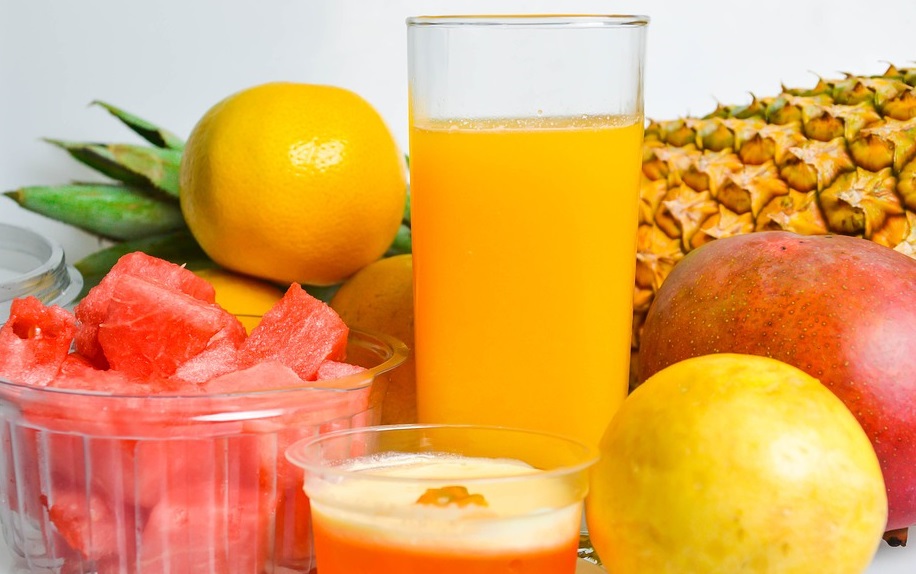When weighing up the healthfulness of various beverages, few consumers would consider fruit juice to be among the bad guys. Certainly, another “bad guy” (we’re looking at you, soda) has long been at the forefront of consumer consciousness with regards to deleterious health and weight outcomes.

Interestingly, the demonization of soda has provided somewhat of a distraction from other sources of sugar and calories that are impeding weight-control and promoting the obesity epidemic.
Soda has long been a vilified source of calories and added sugars. An undisputed “bad” carbohydrate, most consumers (weight conscious or not) know that soda is by no means a health food. But what about fruit juice? Interestingly, despite being virtually identical to sugar-sweetened beverages (including soda), most consumers believe that fruit juice is a far healthier choice than soda.
But doesn’t fruit juice contain more nutrients, because it’s natural?
While 100% fruit juices may contain more micronutrients (vitamins and minerals) than soda or other sugar-sweetened beverages, the presence of micronutrients alone isn’t enough to save the nutritional repercussions of high-calorie, high-sugar beverage consumption. Despite indeed being “natural”, the body views natural and added sugar similarly.
Per 8 oz. serving (1 cup) Coca-Cola contains 100 calories and 39 grams of sugar. Per identical 8 oz. serving, Tropicana Orange Juice contains 110 calories and 22 grams of sugar. Grape juice fares even worse- at 8-oz. a serving of Welch’s Grape Juice contains 170 calories with 40 grams of sugar.
While fruit juices vary by calorie and sugar content, even picking lower-calorie, lower-sugar alternatives may not be enough to promote healthy weight outcomes. Most Americans consume more calories than they need through food in a single day- adding caloric beverages only compounds the issue of caloric overconsumption.
And despite containing what consumers know as “natural sugars” (meaning that the sugars are contained within the source product, instead of being added during processing, as is the case for sugar-sweetened beverages), the effects on weight and blood sugar are the same.
Home-pressed juices must be a healthier alternative, right?
Not so fast.
In reality, when comparing home-pressed juices and a packaged brand (such as Tropicana or Simply Orange), the two products are nutritionally identical.
Many consumers hold the erroneous belief that large juice companies add sugar or other calorie-contributing ingredients to their packaged beverage products. While this is occasionally the case, more often than not, 100% fruit juice products sold in supermarkets are not enhanced with added sugars- most contain no added sugar at all.
So why are there so many grams of sugar on the nutritional label if no sugar is added?
The very nature of fruit juice is such that a large, water-heavy product (whole fruit- for example, an orange) is condensed, being blended or squeezed so that its total weight and size is much less, yet the caloric content remains the same. This is largely because the majority of the fiber is in the connective fibrous tissues that give a whole orange its spherical shape. Even juice brands bearing high-fiber labels are mainly such for added fiber.
Juice dictates that the juice of a product is more calorically dense than its whole food form, period. If you’re a weight-conscious consumer, avoid all beverages containing calories, unless otherwise specified by a doctor, registered dietitian, or healthcare provider. Water is sufficient to fulfil hydration requirements. Focusing on water as a primary hydration source (rather than juice, sports drinks, energy drinks, or other high-calorie, high-sugar products) prevents the caloric overconsumption that tends to occur with the consumption of caloric beverages.
